- Home
- Keith Douglass
First Strike c-19 Page 2
First Strike c-19 Read online
Page 2
Several Russian warships, including three troop transports, were 400 due north of the Jefferson and her escorts, ostensibly conducting their own tests and evaluations. In reality, they were there to keep an eye on the battle group, to make sure what the United States said was an exercise really was an exercise, and to get a look at the new tactics.
The weather was surprisingly calm and clear for that time of year. Later in the season, storms would blow in from the north and be fed by the warm waters of the Gulf Stream current. As winter approached, the full force of the atmospheric fury would descend on the region. During the worst of the storms, even the aircraft carrier would pitch and roll.
But, for now, every ship was taking advantage of the unexpectedly pleasant weather. Weather decks thronged with sailors in shorts and T-shirts, and even if the weather was a bit chilly, they all basked in sunshine.
Admiral “Coyote” Grant was on the bridge, watching the commencement of the latest set of exercises. The object of this short deployment was to practice the latest tactics developed by the Surface Warfare Development Command and test them against real world considerations. Privately, Coyote thought some of the measures were rather farfetched, but he kept his opinion to himself. No point in affecting anyone’s performance by letting them suspect he was highly doubtful about some of the maneuvers they had been asked to test.
Even if he wasn’t necessarily buying into the revised doctrine, he had found one advantage to having a staff walk through a full consideration of the tactics. While they might not agree with what they were being told to do, it encouraged them to think outside the box, to take a different look, a hard look, at the way they did business. And that, Coyote mused, was not a bad thing. Not a bad thing at all.
On the bridge, there was a stilted formality in the air. That was one of the problems with being an admiral, Coyote reflected. While you might still feel like a fighter pilot — and you were, of course — no one else ever forgot the stars on your collar. He had probably spent more time on the Jefferson than everyone on the bridge watch team combined. His first tours had been as a junior officer, just learning the realities of flying the Tomcat. Later, he’d come back as part of both VF-95 squadron and as a member of the Admiral’s staff. This would be his final tour on board as commander of the entire battle group.
But, to the bridge officers, he was not just a guy who knew more about the ship than they could ever imagine. Even those who were tempted to ask his opinion and take advantage of his experience were just a little too junior to have the guts to do so. To most of them, he was the one person they didn’t want to screw up in front of, the one who might note their mistakes and report them to their commanders, blowing the hell out of their careers.
Not that Coyote would have had to go far to find their bosses — most of them were on the bridge just moments after he arrived, trying very hard to pretend they were there on routine visits. Word traveled fast when the admiral started walking around the ship, and every officer or chief petty officer with any responsibility whatsoever wanted to be where he was in order to make sure his people didn’t screw up. But instead of being reassuring, their presence only added to the pucker factor and normally flawless officers and petty officers got nervous and started making mistakes.
But that was part of it too, wasn’t it? You had to learn to operate under stress, not to let it get to you. And, besides, it was his battle group, dammit. And he wanted to see what was going on.
The battle group was currently experimenting with a different concept of antiair warfare. Instead of assigning defense areas radiating out from the carrier, the plan was to have the aircraft cover the starboard side of the carrier and the cruiser cover the port side. The theory was that by concentrating the aircraft assets in one sector, there would be less mutual interference with the cruiser. The problems of firing at incoming enemy aircraft when there were friendlies in the way was an age-old problem.
Nobody was particularly happy about this idea, least of all the fighter pilots. Shooting down missiles was problematic at best. Often they ended up in head-on engagements and lacked the sophisticated processing gear found on board the cruiser.
The cruiser was screaming loudly about it as well. The surface ship officers guarded their missions even more rabidly than the aviation commands did. They saw this as simply one more way to cut down on the number of support missions that required two cruisers instead of just one, and they didn’t like it one bit.
“Good morning, Admiral,” a cheery voice said behind him. Coyote turned to find himself staring into the smiling face of Lieutenant Commander Curt “Bird Dog” Robinson, the new XO of VF-95. “About time to shoot down some drones, isn’t it?”
“I hope not,” Coyote said calmly. “You remind your folks they’re suppose to come close but not actually hit the drones, okay? I don’t want any surprises.” The drones would make two passes by the carrier. A recovery boat was standing by to pull the carcass out of the water for refueling and reuse.
Bird Dog waved aside his concerns. “Oh, they know that. We take care of our toys, that we do.”
“The weather is cooperating,” the admiral noted. “I hope the cruiser does.”
The admiral studied Bird Dog for a moment, repressing a smile as he did so. Bird Dog had just taken over as executive officer of VF-95, and was clearly pleased as punch about it. Bird Dog was tall, a couple of inches over six feet, with a strong athletic frame. He had dark blond hair and blue eyes, and wore a perpetually cheerful expression. He was an excellent fighter pilot, perhaps the best Coyote had ever seen. Present company excluded, of course. No pilot ever admits that anyone is better than he is. But Bird Dog not only possessed the reflexes and eye-hand coordination to excel, but he also had the most important attribute of a good fighter pilot: luck. Bird Dog had been in more tight spots and deadly conflicts, often as the result of his own hotheadedness, than any other pilot Coyote could think of. He’d punched out of more than one Tomcat and lived to talk about it when most pilots ended their careers with an ejection. All that ought to have earned him a number of black marks on his record and permanently stymied his chances of rising to command, but his punch outs were balanced against an even more startling number of victories. Almost single-handedly, he had resolved the problem in the Aleutians, to name but one. Wherever there was a fight, Bird Dog always seemed to be on the leading edge of it. And, while he had scared more than one RIO shitless, everyone else breathed a sigh of relief when they saw Bird Dog’s name on the flight schedule.
“I halfway expected you to be flying the first engagement,” the admiral noted. He grinned as he saw Bird Dog frown.
“I tried to,” the new executive officer admitted. “But the skipper nixed that. Said I didn’t need the practice. Of course, he’s right,” Bird Dog acknowledged, oblivious to the amusement in the admiral’s eyes. “But it seems like there ought to be some good deals in exchange for all the paperwork I wade through every day. You’ve got no idea, sir. No idea.” Bird Dog held up his ring finger for the admiral’s inspection. “Look at that. A paper cut.”
Coyote clapped him on the shoulder. “It just gets worse, my friend. Trust me on that.”
“Vampire inbound,” the officer of the deck announced. Coyote checked the time, then nodded with approval. Right on time, the first drone was making a pass at the battle group.
“If it flies, it dies, right?” Bird Dog asked.
Coyote nodded. “Let’s see how your boys and girls do.”
“Tallyho,” a voice said calmly over tactical. “I have a lock.”
“Who’s that?” Coyote asked.
Bird Dog tried to smile, but it was clear that hearing that particular voice caused an ache in his gut. “Fastball Morrow — you’ve met him, I think. A good stick, and if he ever gets his temper under control, he’s going to be pretty impressive.”
This time, Coyote grinned openly. Yes, he knew Fastball, and Coyote was willing to bet that he wasn’t the only one who felt a deep sense
of vindication that Bird Dog was having to deal with him. What goes around, comes around, my young friend.
Washington, D.C.
The Pentagon
1500 local (GMT-5)
Commander Hillman “Lab Rat” Busby had just finished briefing the Pentagon’s Joint Intelligence Center on the integration of his intelligence team from the Jefferson into the newly commissioned USS United States battle group. While the Jefferson had been completing repairs from striking a mine, Lab Rat and his crew had been temporarily signed to the Joint Intelligence Center, or JIC, in Norfolk, Virginia. During her sea trials, the United States was suddenly broken off from them and deployed to the Far East to intervene in a conflict between China and Taiwan. Since the ship was still in the process of establishing its manning, Lab Rat had offered Coyote the services of his already well-trained and coordinated department. Given the seriousness of the conflict they were facing, Coyote had taken him up on it. Now, however, the United States had her own people arriving, and Lab Rat and his people were back on the Jefferson.
The Pentagon, concerned with manpower management and maximizing efficiency from detached crews, had been keenly interested in the experience. There were murmurs of approval at Lab Rat’s initiative in suggesting the whole scheme to Admiral Grant, and even more approval of the way it had worked out. Lab Rat had been extremely proud of how his people had acquitted themselves and he was gratified to see that some very senior people in the Navy agreed with him.
On the other hand, no good deal ever went unpunished. The Jefferson had a five-day port visit scheduled in Bermuda — five days of sun, fun, and relaxation. After the whirlwind conflict between China and Taiwan, Lab Rat felt he deserved a liberty in Bermuda a hell of a lot more than the rest of Jefferson’s crew. After all, while he’d been in the thick of it, they’d been bored to death in the shipyards.
But, no, instead of enjoying a mild fall in Bermuda, Lab Rat was trudging through the acres and acres of the massive parking lot with a chill wind biting his ears, looking for the very distant parking spot where he’d left his old Renault. While a commander was a senior officer on board an aircraft carrier, at the Pentagon he was nothing. The place teemed with hot and cold running commanders, captains, and even one stars weren’t that uncommon. And while he appreciated the interest from the Secretary of the Navy, he would rather have been in Bermuda with the rest of his crew.
He was pretty sure Chief Armstrong felt the same way. Senior Chief Armstrong, he reminded himself. The chief’s promotion had come through before the conflict with Taiwan, but Lab Rat still found himself bungling it.
Not that the senior chief deserved that. Senior Chief Armstrong was the smartest intelligence chief petty officer that Lab Rat had ever met in his career. The man possessed an almost uncanny insight into enemy intentions and maneuvers, and had already twice saved Lab Rat’s bacon by noticing something askew in satellite photos or in enemy flight patterns.
No, the senior chief had not been crazy about the idea of spending the ship’s liberty in D.C., either, but that was life in a blue suit. He hadn’t even bothered grumbling. He just fixed Lab Rat with that cold, distant stare, and then shrugged impassively. Lab Rat would find a way to make it up to him.
“I thought that went well, sir,” Armstrong said. “They seemed interested.”
Where the hell is the car? Hadn’t it been in this lot? Maybe it was the next one over — yes, that was it. Lab Rat turned to his left and started hiking again, Senior Chief Armstrong falling into step beside him.
“Lose the car again, sir?” the senior chief asked, sympathy in his voice. “If you like, we can head back in, get some overhead imagery. They got real-time transmissions there. We could locate it just by the rust signature.”
“That is a classic car, senior chief, I will thank you to remember,” Lab Rat huffed. “And there’s not a speck of rust on her, as you well know.”
“Yes, sir. Though I suspect if you could build up some, she wouldn’t leak oil so bad.”
“Entirely normal for her to use a little oil,” Lab Rat said. “It shows she’s well lubricated.”
“Right.” The senior chief smirked, but fell silent.
Senior Chief Armstrong liked the diminutive commander who was in charge of the carrier intelligence center, or CVIC, liked him a lot. Commander Busby, he wasn’t much to look at. Maybe a 120 pounds soaking wet, and just a hair over five feet two inches tall. The senior chief caught himself many times almost calling the commander by his nickname. It was too appropriate not to come automatically to your lips.
Commander Busby had short, Marine-clipped, pale blond hair, and large, translucent blue eyes that seemed to wear a perpetually trusting expression. If you didn’t know him, you would make the mistake of assuming he was a wimp. But you only made that particular mistake once.
The senior chief’s regard for his commander was, if possible, even higher than the commander’s opinion of the senior chief, although he found himself constantly resisting the urge to pat his boss on the head. Lab Rat had a sharp, incisive mind, and tolerated no bullshit within his department. And he took good care of his people, with the ferocity of a Jack Russell terrier, and the senior chief had seen the commander rip a new asshole in more than one person who had failed to treat the intelligence specialist right, most notably the chief of staff on board the United States.
Yes, it was easy to underestimate Lab Rat. Once.
The senior chief himself was a tall man, well muscled, and strongly built. His features were craggy, his hair dark and slightly longer than his boss’s. As much as Lab Rat’s face was open and trusting — gullible, some would call it — the senior chief’s was distant and cool. They were an odd-looking pair, but their strengths and weaknesses complemented each other nicely, and the senior chief had to admit the commander was one of the best bosses he’d ever had. The commander’s annual evaluation had earned him his last promotion, and he figured if he could keep up with a kid, he would probably make master chief before he left the ship.
“Who knows what they’ll do, Senior Chief?” Lab Rat said as he walked briskly down a line of cars. “They’re talking about a tiger team, a special unit that they can fly out for a particular area of the world. But we know how that usually works.”
“Yep. A tiger team isn’t always the answer, although I wouldn’t mind some experts around when something goes down.”
“Agreed,” Lab Rat said slowly, momentarily forgetting his search for the missing Renault. “But, I’m not really sure that’s what this entire meeting was about.”
“Sir?” The senior chief played dumb, although he had had the suspicion that something was up. But, you had to wait for the officers to get around telling you on their own terms.
“That night you were out with the chiefs…” The senior chief winced at the memory, as the evening had dissolved into a night of mourning his lost Bermuda liberty in a series of increasingly interesting bars in the D.C. area. He counted it as one of Lab Rat’s strengths that he had not commented on his appearance the next morning. “I spent some time with the two star’s staff. There were a lot of questions about our experiences with satellites. And then there were a couple of defense contractors there as well, some guys from Omicron.” Lab Rat shook his head, not entirely certain he really understood what was going on. “You know much about lasers, Senior Chief?”
“A little, sir,” the senior chief said, his voice suddenly distant.
Lab Rat shot him a sharp glance. “What’s that supposed to mean?”
“What’s what mean, sir?”
“You said ‘a little.’ And then you got that look on your face.”
The senior chief pointed at the far end of the lot. “Isn’t that your car over there, sir?”
Lab Rat stopped dead. “Forget the car for a minute. That look — you had that look.”
“What look would that be, Commander?” The senior chief sounded faintly aggrieved.
“You know exactly what I’m talking ab
out.” Lab Rat shook his finger at him. “Don’t play dumb with me, Senior Chief.”
He gets in these moods, you’d think he was six feet tall, the senior chief thought to himself. I don’t care how big he is, he’s got the voice down cold.
The senior chief sighed, stuck his hands in his pocket and stared up at the sky. “I’ve spent a lot of my time in the Navy staring at computer screens, sir. Some of it has been more interesting than others. Like the tour I spent at Cheyenne Mountain.”
“Oh.” Lab Rat’s mouth snapped shut. Whatever the senior chief had been doing at the Space Command was far too classified to be discussed in any parking lot. “Yes, I think that is my car.”
“What do you guess, maybe a quarter mile away?” The senior chief asked.
“About that.”
Lab Rat forgot about the cold for a while as they trudged toward his car. The news that the senior chief had spent a fair amount of time at the joint command located deep under Cheyenne Mountain was not surprising, although he had not known it before. That would explain how much he’d known about Cobra Dane and Cobra Judy, the long-range over-the-horizon sensors that had been so critical during the Taiwan-China conflict. It would explain a lot about his ability to glean information from satellite photos as well.
“They asked me about you, too, Senior Chief,” Lab Rat said slowly. “About when you were going to retire.”
Lab Rat took some satisfaction at seeing shock flash across the older man’s face. “Omicron’s got its eyes on you.”
“No kidding.”
Lab Rat nodded. “They seemed to know a lot about you. They want you real bad, Senior Chief. And me, too, for some reason. I take it you know what this is about?”
The senior chief seemed lost in thought. Finally, he nodded slowly. “Yes, I think I do. When we get back on board, I’ll tell you what I know.”
For the rest of the trip back to the hotel, the senior chief was silent. He seemed to be deep in thought, as though considering his options. Lab Rat couldn’t blame him, but wished he knew which way he was leaning on the retirement issue.

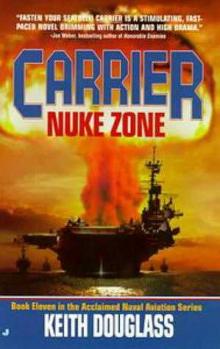 Nuke Zone c-11
Nuke Zone c-11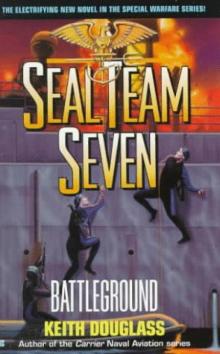 Seal Team Seven 6 - Battleground
Seal Team Seven 6 - Battleground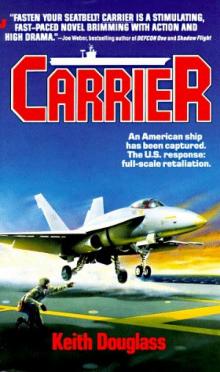 Carrier c-1
Carrier c-1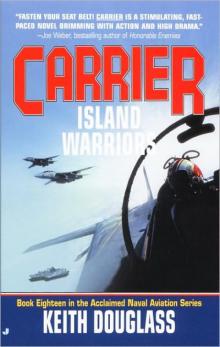 Island Warriors c-18
Island Warriors c-18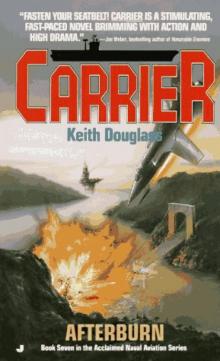 Afterburn c-7
Afterburn c-7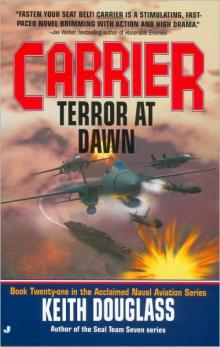 Terror At Dawn c-21
Terror At Dawn c-21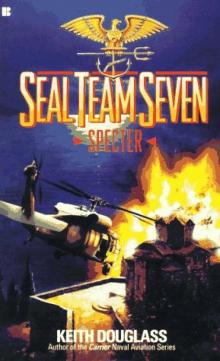 Specter sts-2
Specter sts-2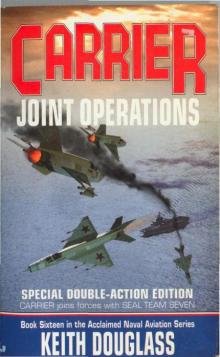 Joint Operations c-16
Joint Operations c-16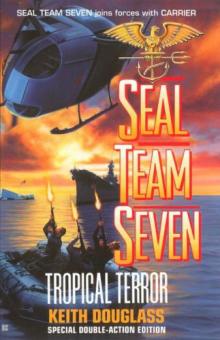 Tropical Terror sts-12
Tropical Terror sts-12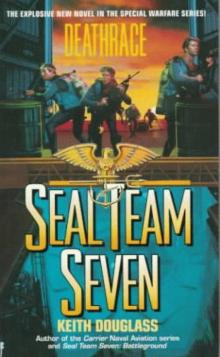 Seal Team Seven 7 - Deathrace
Seal Team Seven 7 - Deathrace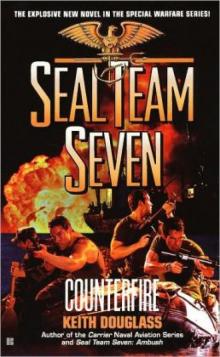 Counterfire sts-16
Counterfire sts-16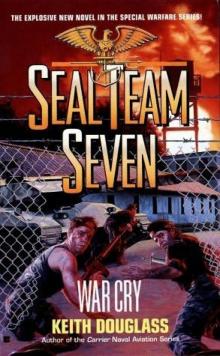 War Cry sts-9
War Cry sts-9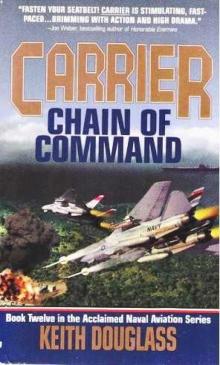 Chain of Command c-12
Chain of Command c-12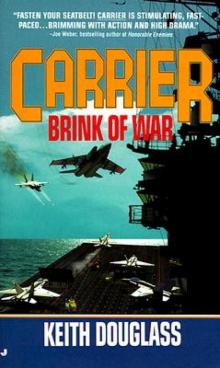 Brink of War c-13
Brink of War c-13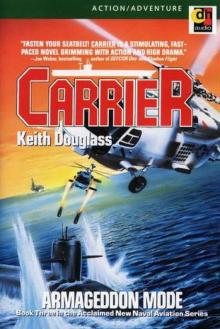 Armageddon Mode c-3
Armageddon Mode c-3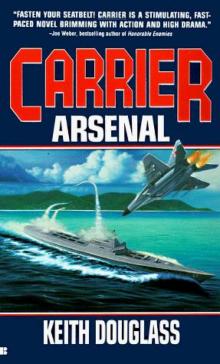 Arsenal c-10
Arsenal c-10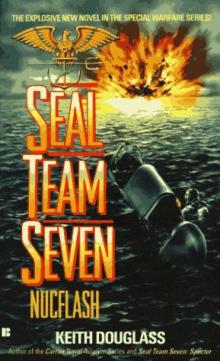 Nucflash sts-3
Nucflash sts-3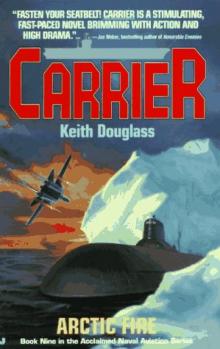 Arctic Fire c-9
Arctic Fire c-9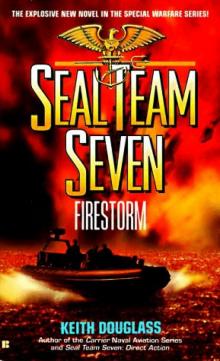 Firestorm sts-5
Firestorm sts-5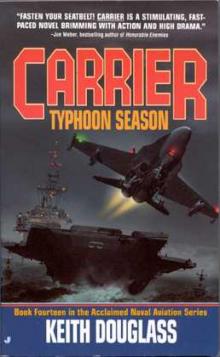 Typhoon Season c-14
Typhoon Season c-14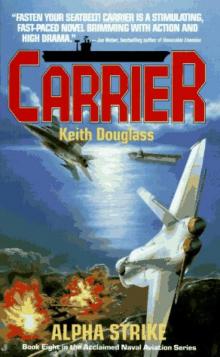 Alpha Strike c-8
Alpha Strike c-8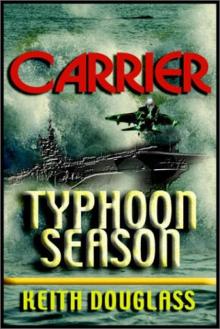 Carrier 14 - TYPHOON SEASON
Carrier 14 - TYPHOON SEASON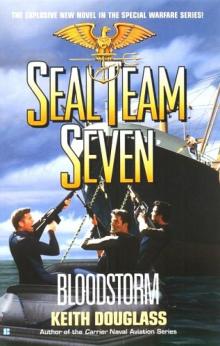 Bloodstorm sts-13
Bloodstorm sts-13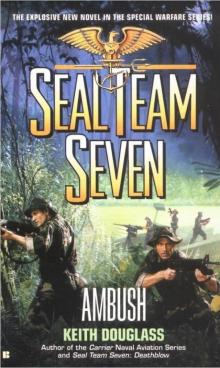 Ambush sts-15
Ambush sts-15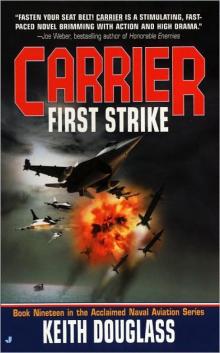 First Strike c-19
First Strike c-19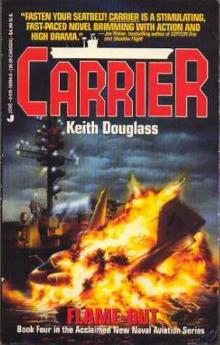 Flame Out c-4
Flame Out c-4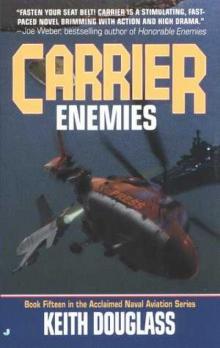 Enemies c-15
Enemies c-15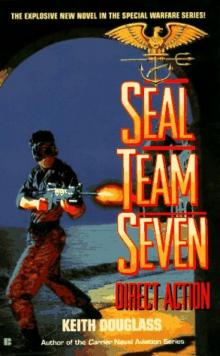 Seal Team Seven 04 - Direct Action
Seal Team Seven 04 - Direct Action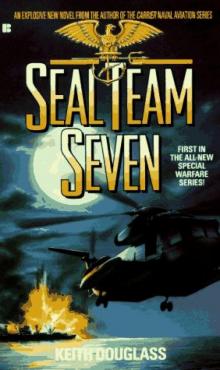 Seal Team Seven 01 - Seal Team Seven
Seal Team Seven 01 - Seal Team Seven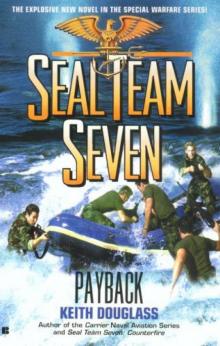 Payback sts-17
Payback sts-17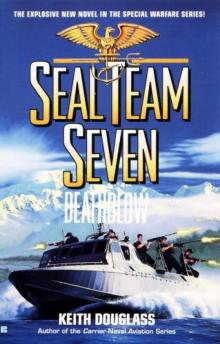 Death Blow sts-14
Death Blow sts-14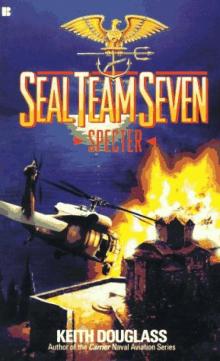 Seal Team Seven 02 - Spector
Seal Team Seven 02 - Spector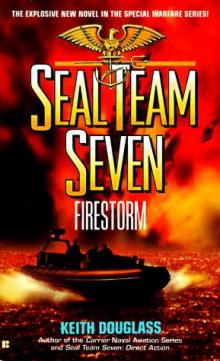 Seal Team Seven 5 - Firestorm
Seal Team Seven 5 - Firestorm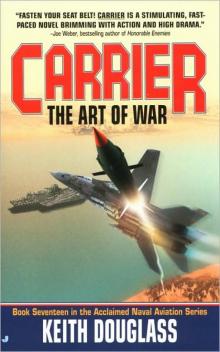 The Art of War c-17
The Art of War c-17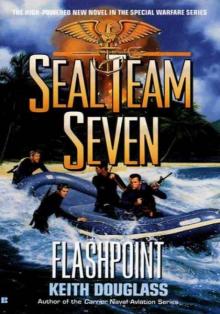 Flashpoint sts-11
Flashpoint sts-11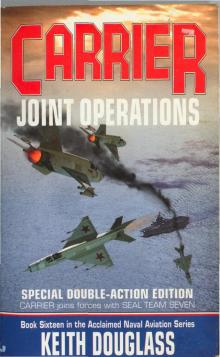 Carrier - Joint Operation Book 16
Carrier - Joint Operation Book 16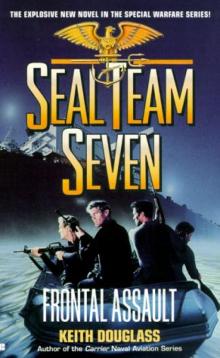 Frontal Assault sts-10
Frontal Assault sts-10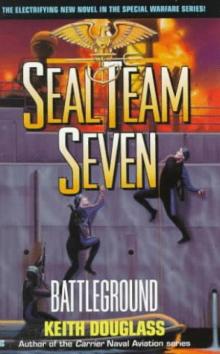 Battleground sts-6
Battleground sts-6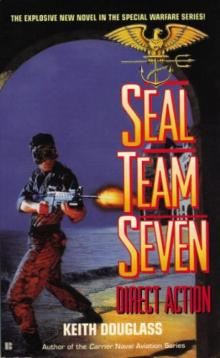 Direct Action sts-4
Direct Action sts-4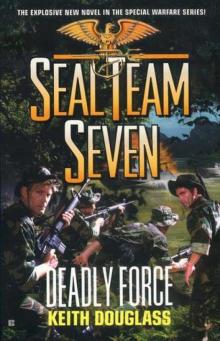 Deadly Force sts-18
Deadly Force sts-18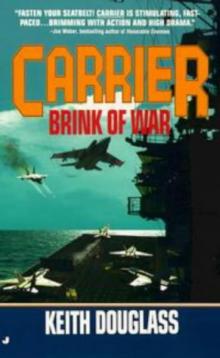 Carrier 13 - Brink of War
Carrier 13 - Brink of War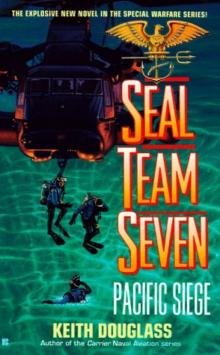 Pacific Siege sts-8
Pacific Siege sts-8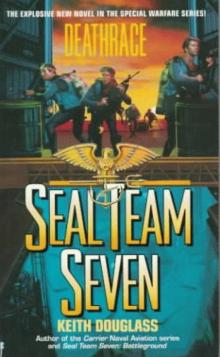 Deathrace sts-7
Deathrace sts-7